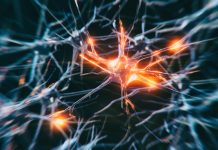‘You are what you eat’ has never rung so true, as researchers uncover links between the gut microbiome and personality traits – so, can nutrition change our psychology?
While it is already widely known that food affects our health and mental wellbeing, researchers also find that distinct bacteria and metabolomes in the gut are associated with personality traits.
Studying links between mental energy (ME), mental fatigue (MF), physical energy (PE), physical fatigue (PF) and the gut microbiome, researchers uncovered that bacteria and metabolome associated with metabolism were associated with either mental or physical energy, while bacteria associated with inflammation were associated with mental or physical fatigue.
Overall, it was found that the four traits, ME, MF, PE and PF have unique, overlapping gut bacteria profiles, which emphasises the need to further analyse the influence of gut microbiota on the brain to understand long-standing feelings of energy and fatigue.
Understanding what gut health can do and how it makes people feel
Researchers at the Texas A&M University School of Public Health conducted a study, published in the journal Nutrients, found distinct bacteria and metabolomes associated with each personality trait.
Taking a subset of individual participants from a larger study regarding the gut microbiome, the participants completed a brief survey that was used to identify potential correlations between gut microbiomes and mental and physical energy and fatigue.
Matthew Lee Smith, associate professor in the Department of Environmental and Occupational Health, said: “This reinforces many of the public health concepts related to nutrition and health. Gut microbiome may be influencing the way you are, not just the way you are today.
“These findings are more suggestive than definitive, but they have contributed to our understanding of what gut health can do and how it makes people feel.”
Ali Boolani, associate professor in the Department of Physical Therapy at Clarkson University and lead author on the study, added: “What you eat determines the bacteria and the microbiome in your gut. With this study, we have made an exploratory link between a person’s microbiome and their mood.”
Chronic fatigue found to have a link to diet
When people experience fatigue, it is usually put down to a lack of energy, but newer evidence suggests that the two are not as connected as previously assumed – finding that fatigue and energy are distinct moods, not necessarily opposites of one another.
Fatigue is a known problem that contributes to poor performance and can be attributed to many diseases and disorders among middle-aged and older adults – however, it has been found to be a greatly misunderstood problem with little research around it.
One area that has been shown to contribute to fatigue is a lack of nutrition in the diet.
A healthy diet can help fight fatigue
As food continues to be the biggest source of energy for individuals, a healthy diet can help to combat some of the pitfalls associated with fatigue, which also includes the disease. Though it is not the only factor, food plays a large role in everyday function and longevity in humans.
Smith further said: “We know that energy and fatigue can be influenced by so many things like what you eat, your physical activity, your sleep, your chronic conditions or the medications you take for these conditions.
“Understanding how nutrition and malnutrition are linked to fatigue and energy is important because falls, chronic fatigue and low-energy can diminish the health and quality of life for older adults living with chronic conditions.
“I think part of the fun here is looking at some of these relationships and being able to better see this interplay and how what you eat can influence these things.
“This study is a strong example of team science with a multidisciplinary collection of scholars. The team represents physical therapy, biology, physiology, chemistry, microbiology and public health. This gives multiple perspectives that can work collectively to interpret and report scientific findings.”
Editor's Recommended Articles
-
Must Read >> Improving mental wellbeing through a healthy diet
-
Must Read >> What healthy habits can help weight-loss success?
















